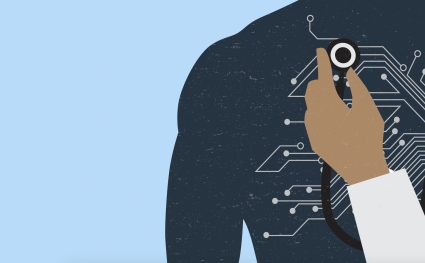
Health Equity
Overview
Within the US, life expectancy can vary by as many as 15 years, depending on income level, education, and where an individual lives. While health inequity is a long-standing issue, recent events exacerbated and highlighted the grave effects of certain inequities.
The COVID-19 pandemic and social justice movements of 2020-2021 sparked a global reassessment of health equity and a push for its advancement. The devastating impact of the pandemic highlighted the urgent need for equitable health care access and outcomes for marginalized communities. At the same time, social justice movements advocating for racial equity exposed how deeply racism is embedded in all institutions and systems, affecting everything from biomedical research to patient care and policymaking. These movements underscored the importance of inclusive research and health policies and called for greater accountability to break down barriers to equitable treatment and care.
Unfortunately, much of the progress that began in 2020 has stalled or even reversed following the 2023 Supreme Court decision on affirmative action. This ruling not only affected college and university admissions policies but also sparked a broader movement across the United States to dismantle diversity, equity, and inclusion (DEI) initiatives in education and other sectors. While such setbacks have happened before, it is crucial for stakeholders to unite and take decisive action to prevent a significant and alarming negative impact on global health.
The Milken Institute Science Philanthropy Accelerator for Research and Collaboration (SPARC), in partnership with the Burroughs Wellcome Fund, conducted an in-depth analysis of the inequities facing the biomedical research ecosystem, from basic research to clinical care. We examined what drives disparities and highlighted ways philanthropic attention and investment could accelerate action around health equity research to improve care and health.
Health Equity in Science: A Giving Smarter Guide
Advancing health equity means ensuring everyone has a fair opportunity to achieve the best possible health outcomes. Explore how philanthropy can drive impactful change in the intersection of health equity and science with our latest Giving Smarter Guide.

Health Equity in Science: A Stakeholder and Funding Analysis
Scientific research is crucial for advancing health equity by providing evidence to understand and address health disparities. Rigorous research helps identify the root causes of inequities, from socioeconomic factors to systemic biases, and can develop treatments and strategies aligned with community needs. SPARC conducted a comprehensive review of key stakeholders and the current funding landscape of initiatives at the intersection of health equity and science.

Featured Panels
-
 Harnessing Community PowerDriving Health Equity Research
Harnessing Community PowerDriving Health Equity Research -
 Bending the ArcHow Philanthropy Can Build a Diverse, Equitable Health Ecosystem
Bending the ArcHow Philanthropy Can Build a Diverse, Equitable Health Ecosystem
Health Equity
Related Articles
-

An Overview of Pediatric Preventive Health Care in the United States
Healthy children are the cornerstone of a healthy world. This is why ensuring that children thrive has been the focus of many philanthropic efforts over the centuries. US-based donors who enter the space often do so because of a distressing...Read Report -

Infrastructure, Readiness, and Resilience: A Long-Term, Biomedical Systems-Based Response to COVID-19
Throughout the COVID-19 crisis, scientists, policymakers, health-care workers, and average citizens worldwide mobilized in ways never seen before to mitigate the challenge at hand. From rapid vaccine development to securing PPE and...Read Report
 EH
EH
-

The Value of Building an Interdisciplinary Scientific Workforce — A Call to Philanthropy
The challenges that science strives to solve are increasingly complex, and making progress toward them requires constant innovation and the expertise of multiple fields of study. Interdisciplinary research drives this innovation by bringing...Read ReportEF


-

Next Generation Prevention - A Giving Smarter Guide
Precision health focuses on improving overall health and preventing disease, rather than treating disease. Using individual patient information like genetics, environmental and psychosocial factors, and lifestyle, precision health as an...Read ReportJR